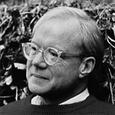Perhaps no book in this generation has had a more profound impact on our intellectual and spiritual lives than The Road Less Traveled. With sales of more than seven million copies in the United States and Canada, and translations into more than twenty-three languages, it has made publishing history, with more than ten years on the New York Times bestseller list.
Written in a voice that is timeless in its message of understanding, The Road Less Traveled continues to help us explore the very nature of loving relationships and leads us toward a new serenity and fullness of life. It helps us learn how to distinguish dependency from love; how to become a more sensitive parent; and ultimately how to become one’s own true self.
Recognizing that, as in the famous opening line of his book, “Life is difficult” and that the journey to spiritual growth is a long one, Dr. Peck never bullies his readers, but rather guides them gently through the hard and often painful process of change toward a higher level of self-understanding.
Dr. M. Scott Peck is a nationally recognized authority on the relationship between religion and science. In 1980, at age 43, Dr. Peck was nondenominationally baptized by a Methodist minister in an Episcopalian convent, where he has frequently gone on retreat. In 1992, he was selected by the American Psychiatric Association as a distinguished psychiatrist lecturer.
Dr. Peck is the author of several books, including The Road Less Traveled, which has sold over six million copies to date in North America alone. He received his B.A. degree magna cum laude from Harvard College in 1958 and his M.D. degree from the Case Western Reserve University School of Medicine in 1963.
In 1984, Dr. Peck and his wife met with nine others to establish The Foundation for Community Encouragement, a nonprofit, public educational foundation, whose mission is to promote and teach the principles of community. As a result of his work with community-building, Dr. Peck has received a number of awards, including the 1984 Kaleidoscope Award for Peacemaking and the 1994 Temple International Peace Prize.


